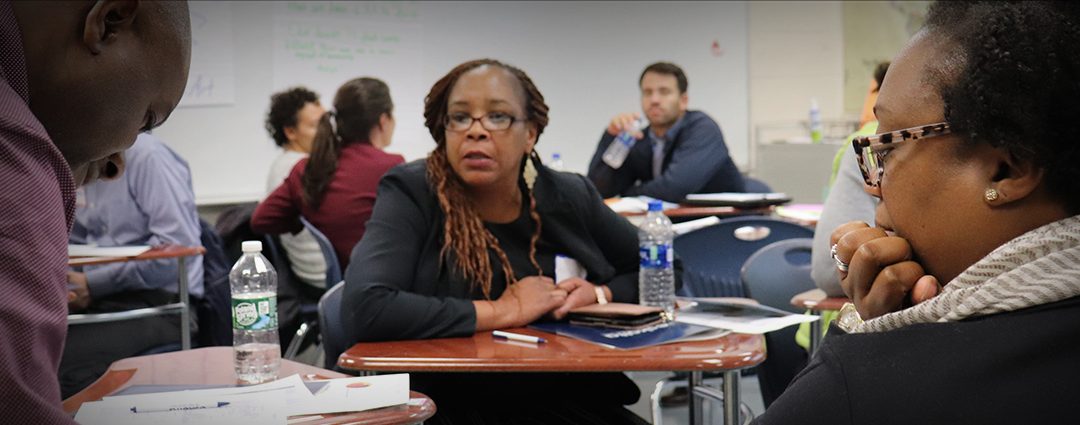“For years, Eskolta’s partnership with transfer schools has helped our school leaders, teachers, counselors, and students to engage overage, under-credited students. The Eskolta Network has the potential to make a real impact in our schools and in schools across the country as they find better ways to give better access to education to students who were once forgotten and left behind.”
We are thrilled to share that Eskolta Research and Design has been selected for a five-year, $15 million grant to increase graduation rates for previously underserved Black, Latinx, and low-income high school students and better understand how to support these students and the educators who work with them. With this grant, funded by the Bill & Melinda Gates Foundation, Eskolta joins 29 other organizations who are part of the Networks for School Improvement and working to find unique solutions to the problems facing students in education. Eskolta’s network is unique in its focus specifically on the population of older, underserved students, students too often missed and misunderstood in our education system.
This grant will allow Eskolta to draw upon years of work in New York City to form a network of schools connected by their shared commitment to transforming learning for students who have struggled and fallen behind. The Eskolta Network will provide an opportunity for educators to participate in regional convenings, site visits, and coaching sessions centered around one of Eskolta’s areas of research-based practice: strength-based culture, mastery learning, and student-centered feedback. Participating schools will work together to explore problems unique to themselves, draw upon research, create practices and tools, test and modify them, and measure their impact on student learning.
“The model we’re using in the Eskolta Network taps into the expertise educators have accumulated through years of work,” noted Eskolta Executive Director Michael Rothman. “They know their students at an intimate level and our design process helps surface this knowledge and deepen it through inquiry, data collection, and rounds of testing. The teachers and counselors we work with really become our research partners. And because they are learning not just how to implement a particular practice but how to use design thinking in the classroom, it becomes an empowering experience that persists even after a project is finished.”
Over the next five years, this community of educators will grow to nearly 50 schools across three school districts in different states. Eskolta is leading the Network with key partners Boston Compact, reDesign, and Motivate Lab, and through vital collaboration with the New York City Department of Education and Boston Public Schools.
Tim Lisante, New York City’s Executive Superintendent for Access Schools, which includes alternative high schools and adult education, said of the new network, “For years, Eskolta’s partnership with transfer schools has helped our school leaders, teachers, counselors, and students to engage overage, under-credited students. The Eskolta Network has the potential to make a real impact in our schools and in schools across the country as they find better ways to give better access to education to students who were once forgotten and left behind.”
“We are constantly exploring innovative methods to engage our youth who are off track to graduate, and this partnership presents a promising opportunity for our schools and the district as a whole,” said Boston Secondary Schools Superintendent Lindsa McIntyre. “I look forward to working with Eskolta to further provide our educators with the resources necessary to help our students reach critical benchmarks in their education.”
Ten years ago, Eskolta set out on a path to give educators the time, space, and support to transform education. Since then we have worked with hundreds of teachers, counselors, and principals to foster a culture of compassion, respect, and high expectations in their schools, so students who were once left behind can thrive.
After a decade of developing projects across partnerships with New York City schools and New York City Department of Education offices, this grant allows Eskolta to expand strategically to Boston in 2019 and a third city in 2022.
Over the next five years, while building out the long-term sustainability of the Eskolta Network, Eskolta will conduct an annual systems study of previously under-served students across New York City and Boston schools. This study will inform how we approach our work, allow us to track progress, and gather the data necessary to support a more nuanced approach to understanding success in alternative schools.
Eskolta’s support will reach more teachers, counselors, and leaders as they engage in critical inquiry and improvement work to increase graduation rates in their schools so students who were once left behind can thrive.

